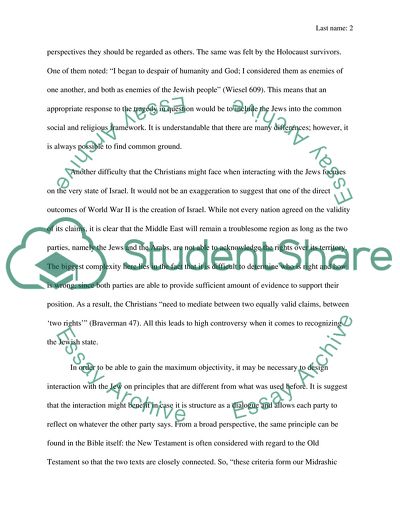Cite this document
(The Way Christians Should Respond to the Holocaust Essay Example | Topics and Well Written Essays - 1500 words, n.d.)
The Way Christians Should Respond to the Holocaust Essay Example | Topics and Well Written Essays - 1500 words. https://studentshare.org/religion-and-theology/1880373-final-reflection-paper
The Way Christians Should Respond to the Holocaust Essay Example | Topics and Well Written Essays - 1500 words. https://studentshare.org/religion-and-theology/1880373-final-reflection-paper
(The Way Christians Should Respond to the Holocaust Essay Example | Topics and Well Written Essays - 1500 Words)
The Way Christians Should Respond to the Holocaust Essay Example | Topics and Well Written Essays - 1500 Words. https://studentshare.org/religion-and-theology/1880373-final-reflection-paper.
The Way Christians Should Respond to the Holocaust Essay Example | Topics and Well Written Essays - 1500 Words. https://studentshare.org/religion-and-theology/1880373-final-reflection-paper.
“The Way Christians Should Respond to the Holocaust Essay Example | Topics and Well Written Essays - 1500 Words”. https://studentshare.org/religion-and-theology/1880373-final-reflection-paper.


